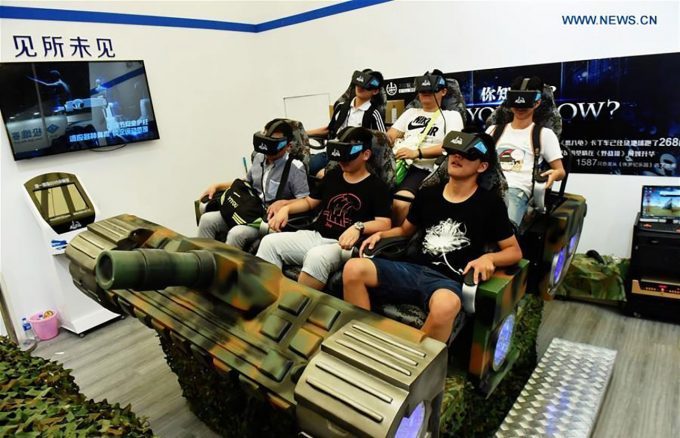

LISTEN TO THE VOICES OF VR PODCAST
After CES, I was convinced that if you want to understand what’s going to be happening in the overall VR ecosystem, then it’s worth looking to see what’s happening in China. The VR market in China is growing, and there is a lot more optimism for technological adoption and enthusiasm for having VR arcade experiences. Education in China is also very important with the one-child/two-child policy, and Graylin says that if VR can be proven to have a lot of educational impacts then the government will act to get VR headsets in every classroom. Once VR is in the classrooms, then it’ll help convince more parents to buy one for the home if they believe it’ll help their education.
In an extensive round-up of Chinese-driven VR growth from Yoni Dayan, he mentions a moonshot project called Donghu VR Town, which is a proposed “city built in the south of the country, designed with virtual reality intertwined in every aspects from services, healthcare, education, to entertainment.” Here’s an untranslated promotional video that shows off what a VR-utopian city might look like:
It’s debatable as to whether Donghu VR Town would be a successful experiment if built, but it reflects a desire to innovate. Graylin said China doesn’t want to just be the manufacturing arm of the world, but that it wants to become a leader in virtual reality as well as in artificial intelligence, as can be seen in this Atlantic article detailing how Chinese universities and companies are starting to surpass American ones in researching and implementing AI.
China is a complicated topic and ecosystem, but after having a direct experience of the TPCast wireless VR, Noitom VR gloves, and the great-looking and high-res stereoscopy from a Insta360 camera at CES, then I think that it’s time to really look to China as a leader in innovation. If China really does go all-in on VR and AI and continues to investing large sums of money, then that type of institutional support is going to leap-frog China as one of the leading innovators in the world. I’ve already have started to see this at CES this year and at the International Joint Conference on Artificial Intelligence where there was a very healthy representation from China, and the thing to watch over the next couple of years is any big educational infrastructure investments by the Chinese government as well as the evolving digital out-of-home entertainment hardware ecosystem.
Support Voices of VR
- Subscribe on iTunes
- Donate to the Voices of VR Podcast Patreon
Music: Fatality & Summer Trip


